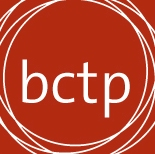Speaker
Description
Generative modeling via measure transport can be effectively understood through the lens of dynamical systems that describe the evolution from a prior to the prescribed target measure. Specifically, this involves deterministic or stochastic evolutions described by ODEs or SDEs, respectively, that shall be learned in such a way that the respective process is distributed according to the target measure at terminal time. In this talk, we show that this principled framework naturally leads to underlying PDEs connected to the density evolution of the processes. On the computational side, those PDEs can then be approached via variational approaches, such as BSDEs or PINNs. Using the former, we can draw connections to optimal control theory and recover trajectory-based sampling methods, such as diffusion models or Schrödinger bridges - however, without relying on the concept of time reversal. PINNs, on the other hand, offer the appealing numerical property that no trajectories need to be simulated and no time discretization has to be considered, leading to efficient training and better mode coverage in the sampling task. We investigate different learning strategies (admitting either unique or infinitely many solutions) on multiple high-dimensional multimodal examples.

